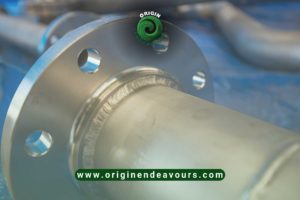
The Importance of Regular Pressure Vessel Inspections: Ensuring Safety and Compliance
Regular pressure vessel inspections are a vital aspect of maintaining safety and compliance in any industrial setting. These inspections play a crucial role in identifying potential issues and ensuring that pressure vessels are functioning properly. By carrying out regular inspections, companies can prevent costly accidents, minimise downtime, and avoid potential legal consequences. In today’s highly regulated environment, adhering to safety standards is a top priority for businesses. Pressure vessels, such as boilers and storage tanks, operate under immense pressure and can pose serious risks if not properly maintained. Regular inspections help identify any signs of wear and tear, corrosion, or improper functioning, allowing for timely repairs or replacements. Additionally, a comprehensive inspection ensures compliance with industry standards and regulations. Inspectors assess various factors, including the condition of pressure relief devices, structural integrity, and material quality. These inspections not only protect workers and the environment but also safeguard a company’s reputation and credibility. In summary, regular pressure vessel inspections are essential for ensuring safety, preventing accidents, and complying with regulations. By prioritising these inspections, businesses can safeguard their operations, employees, and the overall wellbeing of their organisation. Understanding the Risks Associated with Pressure Vessels Pressure vessels are critical components in many industrial operations, yet they pose significant risks if not properly maintained. The immense pressure under which these vessels operate can lead to catastrophic failures if any part of the vessel is compromised. Potential hazards include explosions, toxic gas leaks, and severe injuries to workers. Understanding these risks underscores the importance

